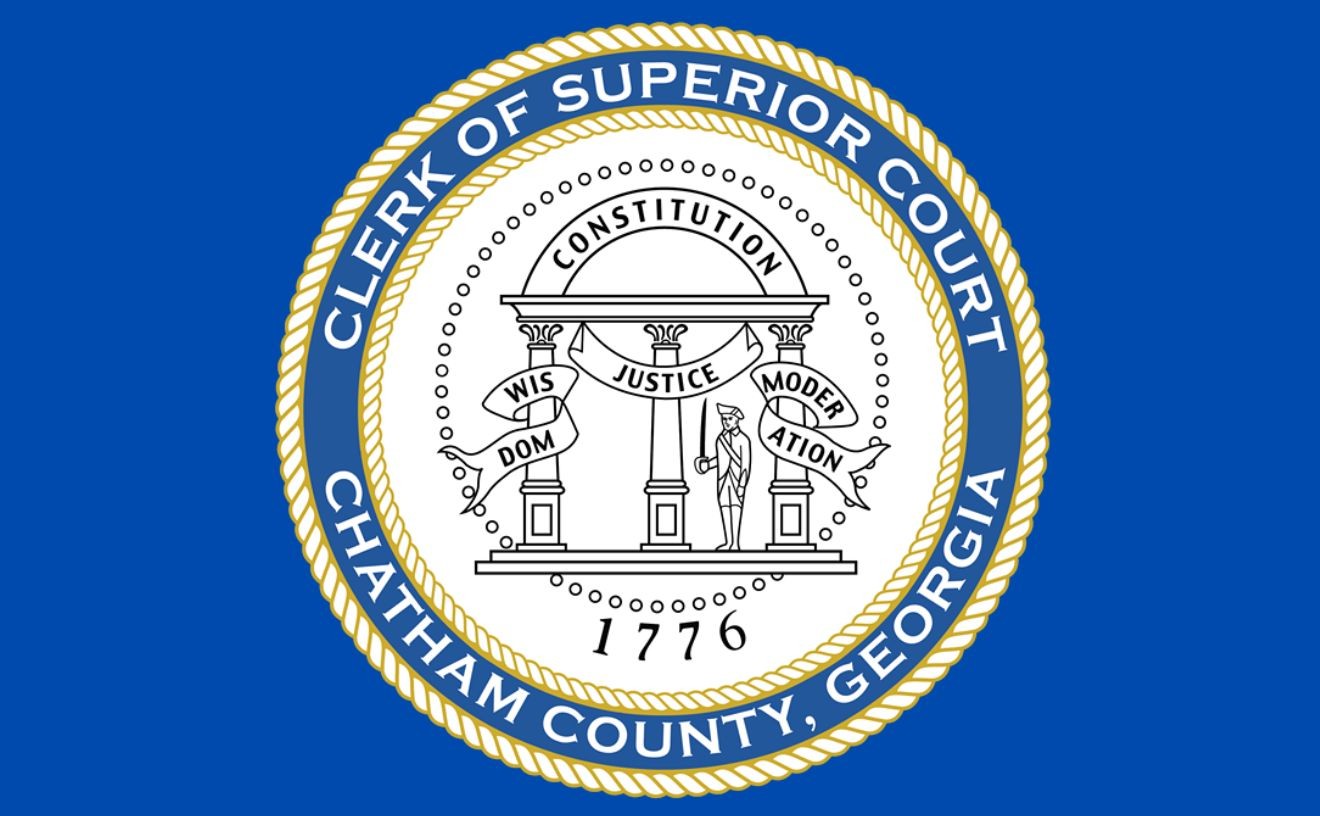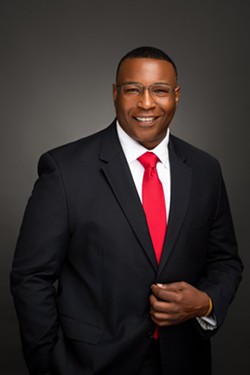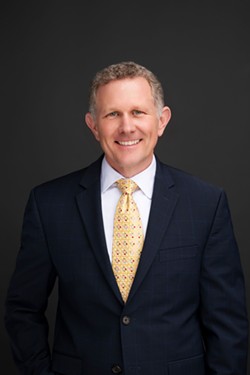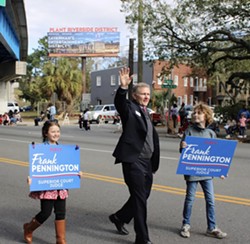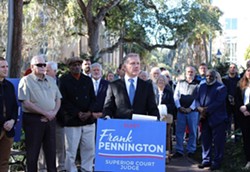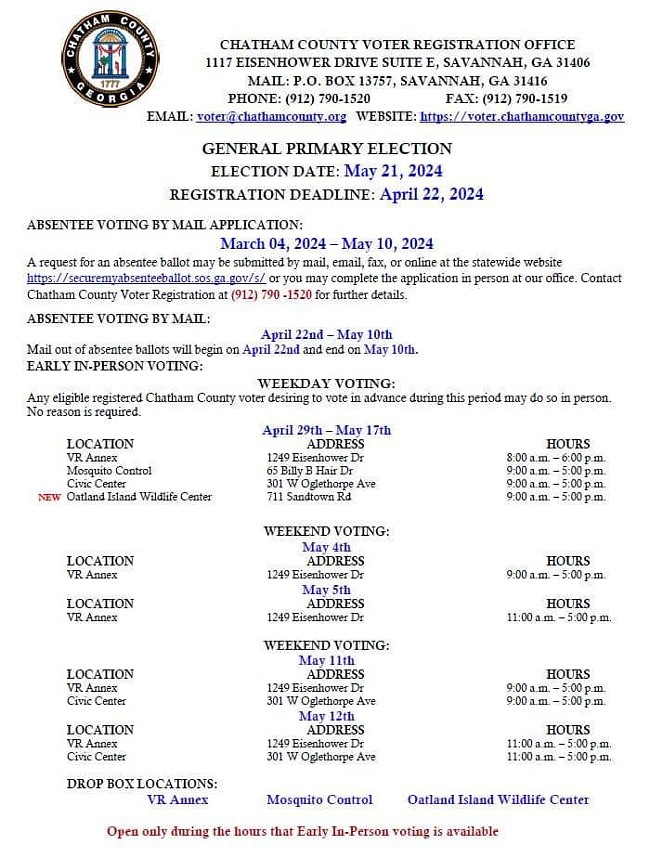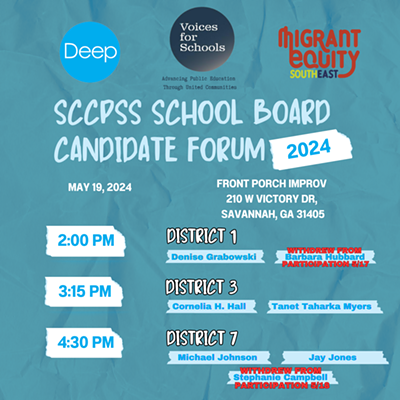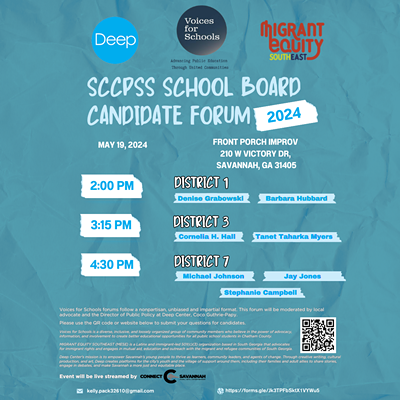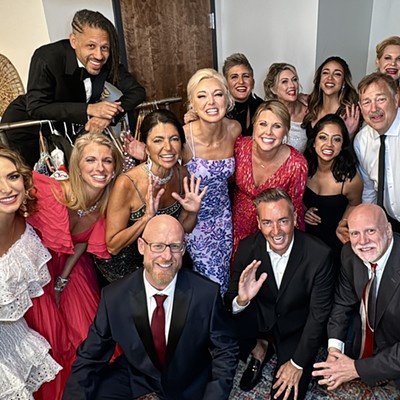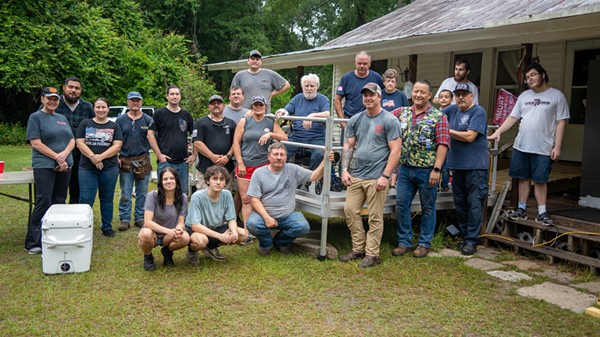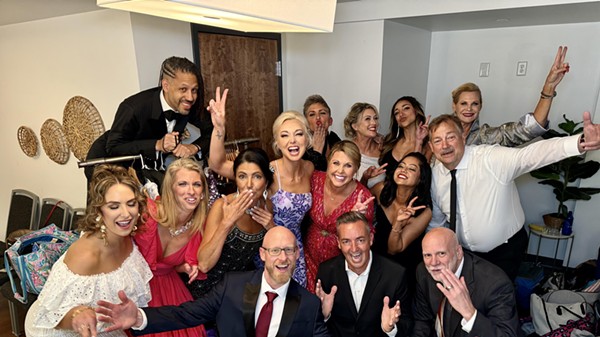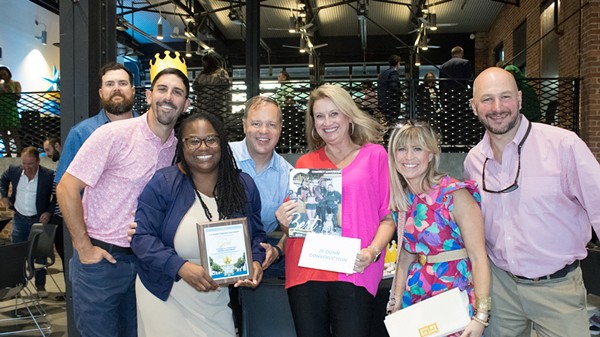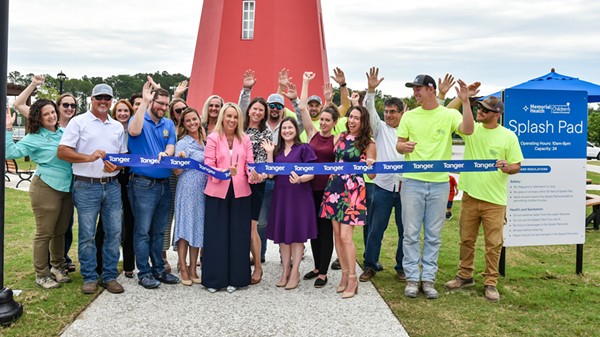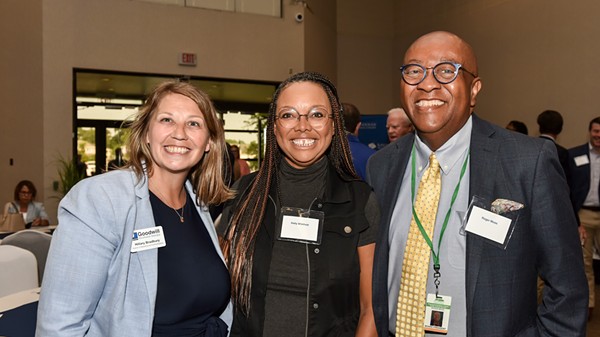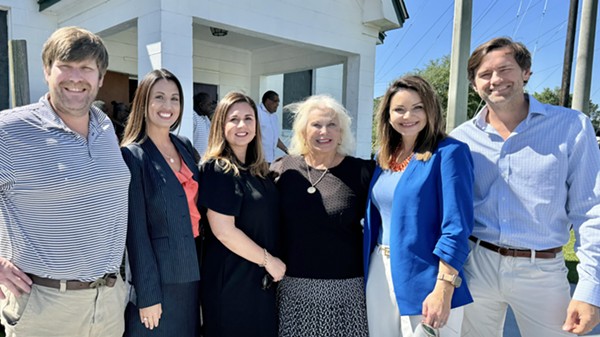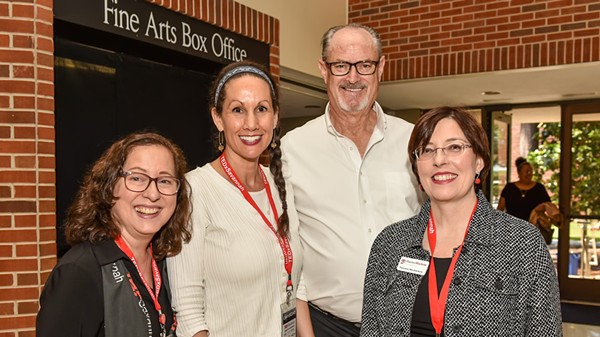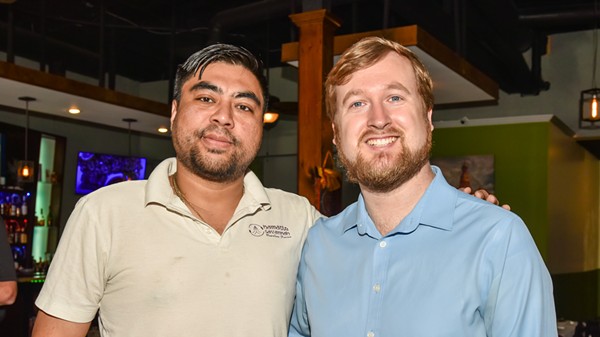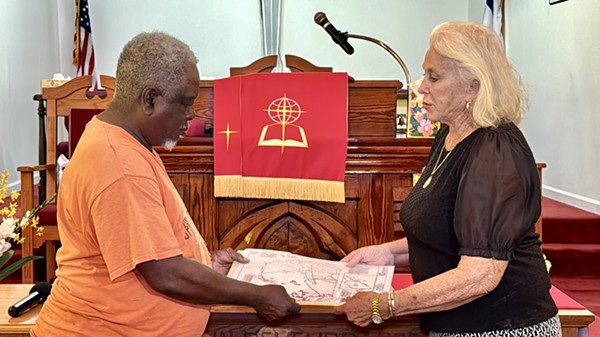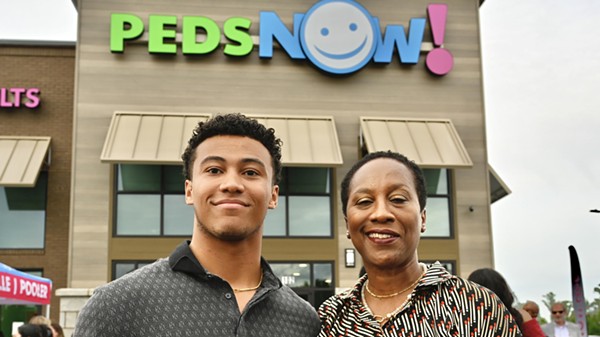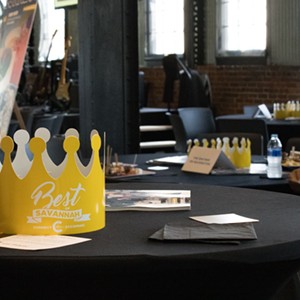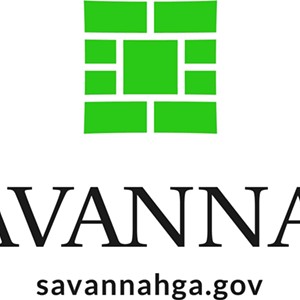Early voting started this week, and one of the races to watch is that of Chatham County Superior Court Judge.
The two candidates on the nonpartisan ballot for this race are Frank Pennington and Chris Middleton. The seat became open when Judge Penny Haas Freesmann, who has been serving on the bench since 1993, decided to retire.
This is the most highly contested judicial race that Chatham County has seen in recent history - possibly ever.
From the barrier islands to the westside, and all of the areas in between, candidates have been walking in parades, shaking hands, and "kissing fur babies".
Election signs for candidates sprinkle the lawns of Savannah homes, and are posted at nearly every major intersection.
Some predict that the result of this election will come down to a handful of votes, being decided by the narrowest of margins.
The United States is one of the only countries where judges are elected, and since incumbent judges are seldomly challenged, and even more rarely unseated, whoever is elected on May 21 will likely serve in the seat for as long as they want.
Why does it matter?
Coco Guthrie-Papy, Director of Public Policy and Communications for Deep Center, a nonprofit whose mission is to empower Savannah’s young people, says, “Superior Court judges hold a lot of responsibility and are seeing some of peoples worst days. It takes balance to understand that and make decisions that are lawful, understanding and also not overly punitive.”
“Ending up in Superior Court it’s not usually because something happened in a vacuum, it’s because a need in someone’s life has gone awfully unmet. Superior Court also has accountability courts, which are really important for treating serious mental, behavioral, and substance abuse issues,” says Guthrie-Papy.
“Should you or a loved one ever find yourself in Superior Court, you want a judge who understands root cause, who listens, who understands what is feasible under the law, and who is not going to sentence or make decisions based on what might be politically expedient. It’s an awfully powerful position and with great power comes great responsibility,” concludes Guthrie-Papy.
Tigerlily Harrington, a recent political science graduate and local organizer says, “For one thing, any of us could end up in front of a judge. On a personal level, we would hope that the person making that call is fair and knowledgeable in the law. The Superior Court in particular, could truly affect anyone; the court has exclusive jurisdiction over family law, and also handles a range of civil and criminal cases.”
“It also has to do with the good of the community. The community is safer and better served if both victims and defendants are treated well and fairly. A judge, like any elected official, serves and represents the community, so both their experience and leadership abilities matter,” Harrington explains.
Connect Savannah asked the candidates questions - a coin flip determined the order of the responses.
CHRIS MIDDLETON
Connect Savannah: What about your previous experience makes you qualified to hold this seat?
My previous experience of working for former Mayor, Floyd Adams, Jr. taught me how to be a true servant leader. Mayor Adams would often say, "I am the Mayor of all Savannah.” Likewise, by virtue of the position, a superior court judge is a servant leader for all of Chatham County. One of the most rewarding things about my work with Mayor Adams was addressing the concerns of the citizens. Humility, patience, and the ability to actively listen were critical components of my job. A judge is the arbitrator of the court. The tools used to achieve this task is the law, professionalism, and patience. There exist many core skill set similarities between the two roles.
My previous experience of working in the Eastern Judicial Circuit Public Defender's Office prepared me to make the transition to Superior Court Judge as well. I began my 10-year tenure with the Public Defender's Office as a paralegal. I was trained to navigate the administrative and procedural functions of the Superior Court. I was promoted to the position of junior attorney and William Dowell (a former prosecutor) became my trial partner and mentor. He taught me how to evaluate cases through the lens of a prosecutor and defense attorney. This balanced approach made me a stronger student of the law. Then Chief Public Defender, Michael Edwards, taught me time management in order to effectively manage a 200-client caseload. Based on my work ethic and ability to manage, I was promoted to the position of Interim Chief Public Defender of the Eastern Judicial Circuit. I believe this experience taught me how to be a good manager of people, budgets, programs and systems to increase efficiency.
My experience as an owner/managing partner of CRMLaw firm makes me qualified to hold the position of Superior Court Judge because it gave me the opportunity to conduct both civil and criminal litigation. This diversity of practice areas expanded my legal knowledge. Additionally, my work experience at CRMLaw firm prepared me for the Superior Court because it taught me the business side of law. A managing partner of a law firm is responsible for setting the vision, mission, and goals of the firm, and ensuring that they are aligned with the needs and expectations of the clients and employees. Being a Superior Court Judge requires and demands more than just a legal skill set. This position requires a person to be able to work well within a team, set goals for staff and expectations for lawyers.
Also, my experience as a pro tem judge makes me qualified to be the next Superior Court Judge. In this capacity, I have presided over dozens of cases between Recorder's Court and Juvenile Court. This practical experience has been invaluable to my development as a judge. This experience also gave me a greater insight into the role, responsibility and temperament of the judiciary. When I took the oath of office in 2018, I remember feeling the gravity of the moment. I remember knowing at that point "to whom much is given, much is expected." Serving as pro tem judge has elevated my understanding of servant leadership, communication and the law. Since 2018 I have attended 6 judicial training seminars and over 72 hours of Continuing Legal Education credits. During this time, I had the opportunity to engage and learn from fellow judges throughout the State of Georgia.
Connect Savannah: If elected, what are your top three priorities?
If elected, my top three priorities would be to first have a meeting with the Superior Court Judges and learn what works well and what doesn't. Far too many times people enter a new configuration without having a conversation about the history, the pedagogy, or the current systems. Next, I would meet with the various judicial teams and staff members to determine their expectations of the court process and myself. Third, based on the information gathered from speaking with the judges and staff members, I then would identify contributions I can make to bolster, improve or promote the overall vision of the court.
Connect Savannah: As a judge, how would you improve the court’s interaction with the public?
The first thing that came to mind was the "I Wish I Knew" program created by attorney Bill Lewis. Attorney Lewis became frustrated by clients not having knowledge of the justice system and decided to educate youth about the importance of making wise choices. Engagement on this level made a huge difference. Given the success of this initiative, I would hold quarterly town hall meetings to discuss the role of the court, the function of the court and the programs offered by the court. Recently, Jennifer Davenport coordinated a Leadership Savannah event where Judge Walmsley, Judge Sapp and Judge Coolidge spoke to the class about the role of the various Chatham County courts. The session was very insightful, and my Leadership Savannah classmates gained a greater knowledge of the legal system.
Connect Savannah: Will you decide cases fairly and impartially, free of political influence?
Yes. Judges should avoid both impropriety and the appearance of impropriety in their professional and personal lives. They should always exhibit behavior that ensures the greatest possible public confidence in their independence, impartiality, integrity, and competence. Adherence to standards of professional responsibility and a broad respect for the law are hallmarks of an effective justice system. The conduct of judges should be characterized at all times by professional integrity. In 2018 I was sworn in as a pro tem judge and took an oath to be fair and impartial. I still honor that oath today.
Connect Savannah: Regardless of your own personal views, will you follow established law?
Yes. The United States Constitution, the Constitution of the State of Georgia and law passed by our legislators are the laws of this land and those are the laws I will follow. It should be noted that the law does sometimes give judges a level of discretion. When applicable, I will exercise that discretion wisely and fairly.
Connect Savannah: Is there a specific issue that you find particularly important?
As a judge, all matters before the court are important. Addressing the rights of victims is important. Ensuring that defendants constitutional rights are not violated is important. Scheduling cases in an attempt to reduce docket backlogs is important. Ensuring that legal parties adhere to the rule of law is important. Eliminating any barriers to access to the courts is important. Emphasizing restorative justice is important. I don't believe I can find one issue that is particularly more important than another.
FRANK PENNINGTON
Connect Savannah: What about your previous experience makes you qualified to hold this seat?
For twenty years, I have committed my life and work to public service on behalf of the citizens of Chatham County. I began my career in 2004 at the District Attorney's Office where I worked as a Special Victims and Major Crimes prosecutor, rising to the level of Deputy Chief Assistant District Attorney. In 2018, I was recruited to the United States Attorney’s Office where I currently serve as an Assistant United States Attorney here in Chatham County.
Throughout my career, I have worked to ensure victims are protected while also guaranteeing the rights of those accused of crime. I have worked closely with community partners utilizing multi-disciplinary approaches to cases, developed protocols, and worked with task forces to improve the judicial system and ensure investigations were fundamentally fair. We worked hard to streamline case flow and reduce delay on our cases. That experience taught me we must work together to address the needs of those impacted by the judicial system – to serve the public good by creating access and by finding ways to lift up our community.
During my time at the District Attorney’s Office, I was fully immersed in the Superior Court. I appeared on behalf of the people of Chatham County weekly, if not daily, and was well respected by the judges and my peers for my commitment to the work. As a result, I was appointed to the Sexual Assault Response Team Expert Committee for the State of Georgia where I helped write the first Georgia Sexual Assault Response Team Guidebook and create a training curriculum used around the state. Whe
n Chatham County’s SART protocols needed revising this past year, I was selected by the Superior Court of Chatham County as the chair of the protocol committee. In short, I have the experience and commitment to Chatham County that is needed to guarantee Superior Court functions efficiently and fairly for the people.
I was also born and raised here in Savannah. My mother, Irene Pennington, was one of Chatham County’s first two female police officers. Growing up here with her example of public service instilled in me a deep desire to help make this community as strong as it can be. Outside of court, I have served on several boards including the YMCA of Coastal Georgia, where I am Board Secretary. I also coach soccer, have been a Cub Scout leader, and am a founder of the Jacob G. Smith Elementary School Mane Men, a men’s group committed to supporting the children and teachers of the school with positive male role models. These experiences have only solidified my belief in this community and my commitment to serve.
My most fundamental belief is that we must do the right thing at the right time. I have followed this objective throughout my career. I am a strong believer that my duty is not to any one person or one case, but to the public good. Although I have had a great deal of success in my career, my work has not been about winning cases or collecting accolades. Rather, my focus has always been on serving this community – a commitment that has always involved knowing the law, giving careful consideration of the facts of each case, and decision making that is fair and impartial. I believe in working hard and being prepared to meet people where they are. I will continue this commitment when I am elected Chatham County Superior Court Judge.
Connect Savannah: If elected, what are your top three priorities?
Addressing the backlog with an eye toward improving case flow and access to court. If we don’t address backlog and case flow, people can’t get to court, can’t get their issues resolved, and we can’t implement strategies that serve the community.
Ensuring both victims’ and defendants’ rights are protected while addressing underlying causes of crime including addiction and mental health.
Supporting and promoting community partnerships to develop opportunities for education in trades, skilled labor, and workforce development which can impact economic security, prevent crime, and reduce recidivism.
Connect Savannah - As a judge, how would you improve the court’s interaction with the public?
First and foremost, I will treat everyone that comes before me with dignity and respect. I will take the time to listen to the position of the parties and any evidence they present before making my mind up about a given issue.
Another thing that could improve the court’s relationship to the public is community outreach and education. During my career, I have had the opportunity to build relationships with community partners through outreach and training, as well as by use of task forces designed to identify needs. I would welcome the opportunity to engage the community through similar programs, perhaps in conjunction with Constitution or Law Day presentations in the community, to increase awareness. I also believe building relationships with stakeholders – attorneys, clergy, business leaders, labor, and community service organizations, for example – can help the court be sure it is serving the needs of the people here in Chatham County.
Connect Savannah: Will you decide cases fairly and impartially, free of political influence?
It is a fundamental requirement of our judiciary that decisions are fair, impartial, and free of political influence. I am not a politician – I did not get into this race for either politics or position, but because of my desire to serve the people of Chatham County. This has been my commitment throughout my career. Even more, it has been my ethical duty to consider the cases that come to me without political influence or favor, to know the law, and to fairly and impartially consider the facts. I have always taken that duty very seriously and will continue to do so as a Superior Court Judge. No matter who you are, what zip code you live in, or how much money you have or don’t have, I will always be fair.
When I trained younger attorneys, one of the things I always emphasized is that if you are going to stand before the court or a jury and tell them you represent the people of Chatham County or the United States, you have to mean just that. Every person who appears before the court deserves to be treated with dignity and respect. I will always strive for fundamental fairness and the rule of law.
Connect Savannah: Regardless of your own personal views, will you follow established law?
A corollary requirement of fundamental fairness is a commitment to following established law. Parties to a dispute or litigation should be able to count on their judge to respect the rule of law and follow constitutional, statutory, and case law. This is especially true in Superior Court, which is a trial court, because it is the duty of the court to apply the law to the facts of the case, or in the case of a jury trial, to instruct the jury on the law that applies. If the judge does not know or does not follow the law, lawyers can not accurately advise their clients, and the parties can not be expected to understand how the dispute might be resolved. Therefore, the parties deserve and should be able to expect the judge will know what the law is and apply it appropriately to the facts before the court regardless of personal feelings.
Connect Savannah - Is there a specific issue that you find particularly important?
We must improve case flow and access for those with pending cases in order to ensure fairness and justice is achieved. We can not effectively implement strategies designed to reduce crime and recidivism, for example, if cases do not reach the court for long periods of time. Ultimately, It doesn’t matter who you are - if you are a victim of crime, a defendant in a criminal case, or a party to a civil or family law matter – justice delayed is justice denied. The court must look for ways to effectively and efficiently have cases heard.
According to the Administrative Office of the Courts, the Superior Court of Chatham County averaged over 1300 dispositions per judge each year between 2020-2023. At the same time, the Superior Court handles some of the most important cases in the county; including felony criminal, divorce, child custody, civil, and equitable relief. Most of us hope we will never come before the Superior Court. If we do, however, we should expect a court which is committed to preventing long delays in scheduling and to ruling on cases promptly. I am committed to ensuring that people have access to the court so that they can get their issues heard and matters resolved.
I am committed to defining strategies that move cases effectively and efficiently so that litigants will have access to the court. This can be achieved in a variety of ways:
I will commit my office to addressing motions in need of hearing dates and orders. Oftentimes, parties involved in litigation, whether in a criminal or civil case, have legal motions they need addressed which will define the issues in the case and therefore must be ruled upon before the parties can determine whether to resolve the case or proceed with trial. As such, motions must be scheduled, heard, and ruled upon in a timely manner or things will bog down.
I will work with attorneys involved in cases before the court; assistant district attorneys, public defenders, and private criminal and civil counsel; to identify needs and determine ways that we can streamline cases.
Finally, I believe we should explore case management software specifically for the judges. This will aid the court in analyzing where delays exist and help produce data the court can use to address cases in a timely and fair manner.
Ultimately, everyone who is impacted by the judicial system needs fair and impartial judges who are committed to the work. No one benefits from delay in the court. In criminal cases, victims do not get justice and defendants are deprived of the opportunity to defend themselves. Families and children are impacted by delay in divorce and child custody proceedings as well. For example, imagine a child custody dispute is filed when a child is three years old, and it takes three years to resolve that case. That type of length impacts a huge part of that child’s life and that of their family.
We have a huge opportunity here in Chatham County to create generational change. I am committed to supporting programs designed to provide necessary job skills and training that create economic opportunities, prevent crime, and reduce recidivism, as well as address the problems of addiction and mental health. At the same time, we have to ensure that no one with a case pending before the court has to wait years to have it resolved. In order to do so, we must address case flow and access to court.
Election Day is Tuesday, May 21; and early voting starts on April 29 at four Chatham County locations - VR Annex, Mosquito Control, Civic Center, Oatland Island Wildlife Center. People who have questions about voting are encouraged to call Chatham County Voter Registration at (912) 790-1520.

